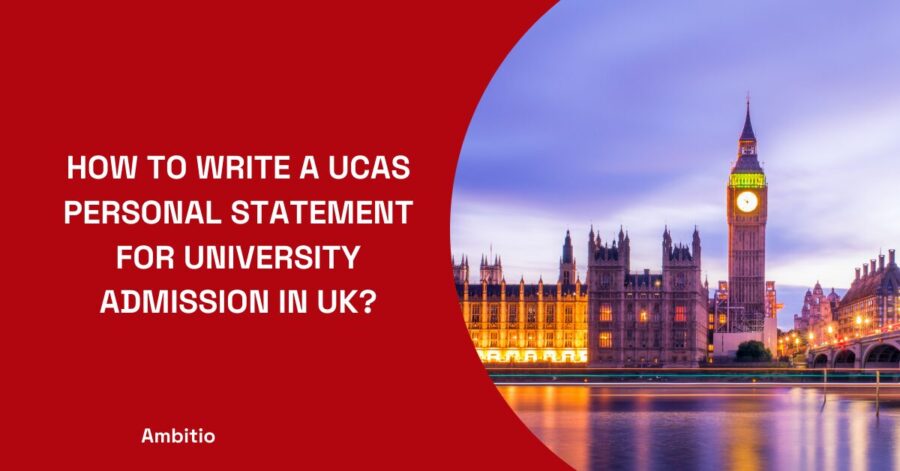14 December 2024
7 minutes read
Navigating Diploma Courses in the UK After 12th: A Comprehensive Guide for International Students

Introduction
Embarking on a journey of further education overseas is a monumental step for any student. For those who have just completed their 12th grade, the United Kingdom stands out as a beacon of academic excellence, offering a diverse array of diploma courses tailored to propel students towards their career goals.
This blog post delves deep into the essentials of pursuing diploma courses in the UK after the 12th, providing a detailed roadmap for international students, particularly from India, to navigate through the plethora of options available in the British educational landscape.
Choosing the Right Diploma Course in the UK After 12th
Assessing Your Interests and Career Aspirations
Before diving into the application process, it’s crucial to assess your interests and long-term career goals. The UK’s education system is structured to provide specialized diploma courses in various fields such as business, healthcare, engineering, creative arts, and more.
It’s advisable to consult with career counselors, attend education fairs, or participate in webinars to gain a clearer understanding of what each course offers and how it aligns with your aspirations.
The Value of a UK Diploma on the Global Stage
A diploma from a UK institution is highly regarded globally. Not only does it vouch for the quality of education you’ve received, but it also signifies your exposure to diverse cultures and innovative thinking.
International students, including those from India, often find that a UK diploma enhances their employability, equipping them with both theoretical knowledge and practical skills that are in high demand by employers worldwide.
Meeting the Academic Requirements
Understanding the UK’s Educational Framework
The UK’s educational framework for diploma courses often requires a sound academic record in your 12th grade, with specific grade requirements varying by institution and course.
Some courses might also require you to have taken certain subjects during your high school studies. Moreover, if you are a non-native English speaker, proficiency in the language is a must, usually evidenced by scores from IELTS, TOEFL, or similar examinations.
The Application Journey
Navigating the UCAS and Direct Application
The Universities and Colleges Admissions Service (UCAS) is the primary platform for undergraduate applications, while for some diploma courses, you might apply directly to the college.
The application process involves submitting personal details, educational qualifications, a statement of purpose, and reference letters. It’s essential to be mindful of the deadlines and prepare your application well in advance to ensure it reflects your abilities and commitment.
Financing Your Studies in the UK
The financial aspect of studying abroad is a significant concern for many international students, including those from India. The United Kingdom, while being a hub of excellent educational opportunities, can also be financially demanding.
However, with careful planning and knowledge of the available resources, financing your studies can be made more manageable. Let’s explore the various financial avenues and strategies that can help international students fund their diploma courses in the UK.
Understanding the Costs Involved
The first step in financial planning is to understand the full cost of studying in the UK. This includes tuition fees, which vary depending on the institution and the course, as well as living expenses such as accommodation, food, transportation, and personal expenses.
On average, international students can expect tuition fees for diploma courses to range between £10,000 and £20,000 annually. Living costs can add an additional £9,000 to £12,000 per year, depending on the location and lifestyle.
Scholarships and Bursaries
Scholarships are the most sought-after form of financial aid as they do not require repayment. Many UK universities offer scholarships specifically for international students, and some are dedicated to students from certain regions, such as the Commonwealth Scholarships or Chevening Scholarships.
Additionally, there are bursaries based on financial need and merit-based scholarships recognizing academic, athletic, or artistic talents. It’s important for students to research and apply for these scholarships early, as competition is typically fierce and deadlines are strict. Information can be found on university websites, educational forums, and through the British Council.
Part-Time Work Opportunities
The UK allows international students to work up to 20 hours per week during term time and full-time during holidays. This can be a significant aid in covering daily living expenses and also provides valuable work experience.
Jobs can range from campus positions, like library or administrative roles, to off-campus jobs in retail, hospitality, or internships relevant to the student’s field of study.
Education Loans
Education loans are a common way to finance studies, especially for students from India, where several banks and financial institutions offer loans for overseas education.
These loans can cover tuition fees, travel, insurance, and living costs. It’s crucial to compare interest rates, repayment terms, and the loan processing time before applying.
Sponsorships
Some students may be eligible for sponsorships from their employers, especially if the diploma enhances their current job role. There are also external organizations, including charities and trusts, that sponsor promising students. These sponsorships can be full or partial and may come with certain conditions, such as working for the sponsor for a set period after graduation.
Financial Planning and Budget Management
Effective financial planning is vital for managing the cost of studying in the UK. This involves creating a budget, considering all possible expenses, and finding ways to reduce costs, such as opting for more affordable housing, utilizing student discounts, and keeping track of daily expenditures.
Government Support and Loans
In some cases, international students may have access to their home country’s government support for studying abroad. For example, the Indian government has several schemes and subsidies for students studying internationally.
The UK government also provides loan options for EU students, although this may change post-Brexit, so it’s essential to stay updated with the latest information.
Career Opportunities and Pathways Post-Diploma
Embarking on a diploma course in the UK is more than just acquiring education; it’s preparing oneself for the competitive global job market. Upon completion of a diploma, students find themselves at a crossroads with multiple avenues to explore.
Whether it’s jumping straight into the workforce, pursuing further studies, or exploring entrepreneurial ventures, a UK diploma opens up a myriad of opportunities.
Transitioning From Classroom to Career
A UK diploma is designed not only to impart knowledge but also to equip students with the skills necessary to thrive in their chosen fields. For example, a diploma in business from a UK university includes case studies, internships, and often live projects that provide real-world experience. These practical components ensure that students are not only academically qualified but also ready to tackle real industry challenges.
After completing their diploma, students have the opportunity to enter various sectors such as technology, healthcare, business, creative industries, and more. UK-educated individuals are highly sought after due to their ability to adapt, their critical thinking skills, and their familiarity with innovative practices.
Further Education and Specialization
Some students may choose to build upon their diplomas with further education. This could involve enrolling in an advanced diploma or degree program. For instance, a student with a diploma in Computer Science might progress to a Bachelor’s degree in the same field to deepen their knowledge and improve their prospects for higher-level positions.
The UK education system is structured to facilitate this progression, with many universities offering credit transfers or shortened degree programs for students who have already completed a diploma.
The Global Market and International Opportunities
A diploma from a UK institution carries international prestige and is recognized by employers worldwide. This global recognition provides graduates with the opportunity to explore career options not just within the UK but across the globe.
Whether it’s working for multinational corporations, engaging in international projects, or taking roles in emerging markets, a UK diploma serves as a passport to international career opportunities.
Networking and Professional Growth
Throughout their education, diploma students are encouraged to network, which can significantly influence their career paths post-graduation. UK universities often host career fairs, alumni talks, and industry workshops that allow students to connect with professionals and organizations within their field of study. These connections can lead to job offers, mentorship, and collaborative opportunities in the future.
Entrepreneurship and Start-up Culture
The UK’s vibrant start-up culture is another potential pathway for diploma graduates. With a strong focus on innovation and entrepreneurship, many diploma courses include modules on starting and managing a business. This encourages graduates to venture into creating start-ups or becoming freelancers, contributing to the dynamic landscape of British entrepreneurship.
Supportive Post-Study Work Visas
The UK government’s introduction of post-study work visas under the Graduate Route allows international students to stay in the UK for up to two years after their studies, providing a substantial time frame to secure employment or gain practical work experience within their field. This not only offers an immediate opportunity to apply one’s skills but also enhances long-term career prospects.
The Alumni Network and Post-Study Support
Leveraging Connections for Future Success
UK universities boast extensive alumni networks that span the globe, offering a wealth of resources and connections. Engaging with alumni can provide insights into career progression and may open doors to job placements.
Furthermore, universities often have dedicated career services that assist with resume building, interview preparation, and job search strategies, even after graduation.
Life Beyond Education: Settling in the UK
Exploring Work and Residency Options
For many international students, studying in the UK is the first step towards settling in the country. Post-study work options, such as the Graduate Route, allow students to remain in the UK and work at any skill level for two years after completing their course. This period can be pivotal in gaining valuable work experience and potentially leading to further residency options.
Conclusion
Diploma courses in the UK after 12th are more than just academic qualifications; they are passports to a world of opportunities. For international and Indian students alike, these courses offer a blend of rigorous academics, practical experience, and a chance to grow in a multicultural environment.
As you embark on this educational adventure, the UK stands ready to welcome you with open arms and a promise of a transformative experience that extends well beyond the classroom.
FAQs
How do I choose the right diploma course in the UK after 12th?
Consider your interests, research potential career outcomes, and consult with educational advisors or current students in the UK. It’s also helpful to look at the course content and structure, as well as the university’s reputation in that field.
What is the cost of studying for a diploma in the UK?
Costs vary depending on the institution and course but expect to pay anywhere from £10,000 to £20,000 per year for international students. Remember to factor in living expenses, which can average around £12,000 per year.
What are the visa requirements for Indian students to study in the UK?
Indian students will need a Tier 4 (General) student visa. Requirements include proof of admission, financial stability, English language proficiency, and a clean criminal record.
Are part-time work opportunities available for students pursuing diploma courses in the UK?
Yes, students can work up to 20 hours per week during term-time and full-time during vacations. However, check the latest visa regulations for the most accurate information.
Can I stay in the UK after completing my diploma course?
Yes, you can apply for the Graduate Route visa, which allows you to stay in the UK for two years after your studies to work or look for work.

You can study at top universities worldwide!
Get expert tips and tricks to get into top universities with a free expert session.
Book Your Free 30-Minute Session Now! Book a call now




























